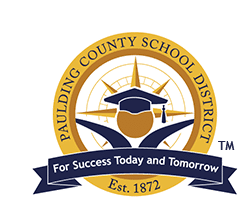You will agree with me that most students come to school with a lot of problems & challenges. And most times the school refers them to a guidance counselor.
So, are you among the parents and students unsure what their Guidance Counselor does? Here you will find full detail of a School Guidance Counselor career, basic salary, and job descriptions.
Recently, School Guidance Counselors offer a range of services and they have become a crucial part of the education system. In fact, there are more than 200,000 Guidance Counselors working in schools in the US currently.
Though they may not be teaching in the classroom, School Guidance Counselors have as much impact on students as teachers. And sometimes they offer help that teachers may not provide.
Hence, if you are interested in learning more about what a school guidance counselor does in their day-to-day activities in high school and elementary school.
This article will specifically enhance your knowledge of what a School Guidance Counselor does. It will also educate you on the career of a school guidance counselor, their basic salary, and job descriptions.
Table of contents
What is a Guidance Counselor
Basically, a school guidance counselor is part of the school teaching team and they provide valuable assistance to students. By helping them with their school goals, social and personal development, and professional development. They work in public or private elementary schools, middle schools, high schools, and colleges.
Also, School counselors help students overcome problems that hinder learning, well-being, and development. Most importantly, they help students make the best projects and decisions about their lives, their education, and their future work.
Furthermore, School guidance counselors help students develop and reach their full potential to live meaningful, happy, and rewarding lives. Above all, they often organize development-friendly groups and prevention-focused activities to meet the needs of the students and the goals of the school.
Full Guide On How To Become A Marriage Counselor
What Does a School Guidance Counselor Do?
As we stated earlier, school guidance counselors exist in schools basically to help students. In general, school guidance counselors help students develop the academic and social skills necessary to succeed in school and later in life.
Most importantly, school guidance counselors play an important role in the success of their studies. In addition to meeting the social and emotional needs of students, they also help them explore their interests and possible career options. Of course, these responsibilities vary according to the age of the students.
Practically, all student builds trust in someone and it further inspires confidence, but the counselor must also know when it is necessary to violate this confidentiality. When students discuss crimes, abuse, or neglect, counselors must report this information to the appropriate authorities.
School Guidance Counselors should also report suspected crimes, abuse, and neglect when their professional judgment makes them believe that these events have occurred or are ongoing.
Above all, students should trust their advisors. Without trust, students will not provide guidance counselors with the information they need to properly apply their professional knowledge.
As you can see, school guidance counselors have many responsibilities to improve the lives of their students, in and out of school.
What Does a Middle School Guidance Counselor Do?
Specifically, the middle school counselor is responsible for the development, implementation, and administration of a comprehensive program of the school board. In order to meet the academic, social and professional development needs of students enrolled in DCPS.
Also, Middle School Guidance Counselors do not provide therapy or long-term counseling in schools. However, middle school counselors are ready to recognize and respond to students’ mental health needs, and to assist students and their families in finding resources.
Equally, the middle school guidance counselor provides experience in program development, program implementation design, and evaluation of everything from large-scale educational programs to the treatment of, particularly ill people.
Finally, Middle school counselors provide essential support to students during adolescence. They strive to create an attentive and stimulating learning environment for students and help them develop the essential skills for classroom success and social success.
How Can I Become A Substance Abuse Counselor In 2024? Education, Salary, Licenses.
What Does a Guidance Counselor Do in Elementary School?
An elementary school guidance counselor is a qualified counselor who works specifically in the elementary school environment. In this unique environment, they can provide staff advice, and student counseling services and help parents whose children may have difficulties. By providing the school with a development program based on evidence-based psychological principles, they are an essential addition to the school.
Also, they ensure that the on-site orientation program meets all local and national requirements.
Equally, elementary school guidance counselors can be an important point of contact by working closely with all groups of people involved in the school. Such as students, parents, teachers, and administrators.
More specifically, these elementary school counselors help young students make informed decisions and develop healthy relationships with their peers. At the elementary level (primary school), counselors are responsible for providing support in the following areas. Such as curriculum development, support for teachers, students, and staff, receptive services, and individual classroom planning.
According to the American Association of School Counselors, elementary school counselors provide students with a solid education while providing effective prevention and intervention services.
What Does a Secretary Do? Career & Salary
What Does a High School Guidance Counselor Do?
The job description of the high school guidance counselor includes helping students develop academic and professional plans. Basically, high school guidance counselors also help teenagers overcome obstacles to success. They can work individually with students with personal problems.
Equally, they could also work on a larger scale to educate students about drug addiction, bullying, or other important problems facing high school students. In addition to this, high school guidance counselors also help prepare students for life after graduation.
High school counselors provide additional guidance on the application process for college and other avenues, such as apprenticeship or training programs. They also help teenagers develop tactical skills, related to job applications, job interviews, and curriculum writing, critical to their success after graduation.
High school counselors often play the same role as elementary and high school counselors, except that they are also responsible for helping students determine what they will do after high school and preparing them for the track they choose. High school counselors can help teenagers gather and complete college applications and take important exams such as the SAT or ACT.
Finally, they help students know about careers or universities that may interest them and determine if they fit well. Counselors help students write their resumes and develop their interview skills. They also help students solve their personal problems that may affect their education.
Know More About Marriage Counselors From This Full Guide On How To Become A Marriage Counselor
School Guidance Counselor Career
Basically, a school guidance counselor is someone who helps students throughout their studies. And this may include advice in the areas of academic success, career options, or personal and social development. In particular, these professionals work with students of all ages, from elementary schools to high school.
Hence, choosing a career in counseling such as a school guidance counselor will do you a great deal.
Above all, it is the responsibility of a school guidance counselor to help students define academic goals and assess their strengths, weaknesses, likes, and dislikes. School guidance counselors of all levels also help students deal with personal, social, and behavioral problems.
Basically, school guidance counselors play a vital role in strengthening the new identity of their students. By working with teachers, parents, and administrators, they create an environment that maximizes personal and academic performance.
Typical university counseling involves an assessment of the current situation in the school, especially the programs and the individual. The objectives are to create an environment in which each student can regain self-confidence and believe in their skills as an apprentice.
What Does a Patient Advocate Do? Job Description, Salary, and Requirements
How Can I Become a School Guidance Counselor?
University is a very difficult time for most students. It is a period of personal exploration, a period of searching for one’s identity, and, physiologically, a period of rapid growth. Together, these two attributes of the middle-aged student create a lot of insecurity and fear. That is when a School Guidance Counselor comes in handy.
Hence, for those seeking information on how to become a school guidance counselor, the first step is to obtain a bachelor’s degree. Psychology and children’s communication are courses that will help future counselors develop the skills necessary to enter the profession.
Most school board programs also include a period of fieldwork, which allows students to gain practical experience in the field. Many states require a master’s degree to become a school guidance counselor.
This program may require the approval of the state board of education, including specific courses and / or specific accreditations. Be sure to check with your state board for detailed requirements.
Typical steps to becoming a school guidance counselor are:
Step 1: Complete a Bachelor’s Degree in a Behavioral, Social Science, or Education Field.
Obtaining a degree in a field related to counseling or education is an introduction that allows you to explore the dynamics of helping professions and working with students. As well as focusing on the fundamentals of mental health, educational systems, learning theories and student services.
Step 2: Earn a Master’s Degree in School Counseling
As a prerequisite for any career as a school guidance counselor, you must have a master’s degree from an accredited university. Typical courses in these programs include counseling theories, learning, and behavioral disorders, human development, and board ethics.
Some school guidance counseling degrees offer unique programs, such as Counseling @ NYU. Which focuses on bilingual school counseling with courses focused on language development and adaptation of young people with immigrant backgrounds. Go to the next step and request information on Counseling @ NYU.
What Does a Computer Technician Do? Job Description, Salary & Certification
Step 3: Complete Graduate Internship Experience for Certification/Licensure Requirements
During your Master’s Program in School Counseling, you will be asked to complete an internship experience supervised by graduates in schools run by a certified school counselor.
This experience prepares you best for a graduate job because it immerses you deeply in your work with students.
Step 4: Pass any required exams for Certification/Licensure.
Some states and/or school board programs require successfully completing a recognized exam for graduation or certification/licensing. Examine your state’s requirements for more information.
Step 5: Apply for and earn additional certifications.
The American School Counselor Association (ASCA) and other professional organizations offer additional certifications on a wide range of topics to prepare you for further training and specialization in your work with students.
What Does A Talent Manager Do?
Step 6: Continue your education and stay up to date on school counseling trends and changes
The profession of the school board is closely linked to the areas of education and counseling. To keep abreast of changes and updates in both areas, school counselors need to seek continuing education credits in various ways to maintain their certificate/license.
What Education or Certification Will I Need to Become a School Counselor?
Obtaining a four-year university bachelor’s degree is the first step in your training to become a school guidance counselor. Basically, a bachelor’s degree in education, psychology, or sociology will better prepare you for your graduate work. Still, if you have already obtained a bachelor’s degree in another field, that is equally acceptable.
Most of the time, the degree you will take is a Master in Counseling Education, which will take two to three years to obtain. This degree offers a combination of learning and practical experience in the classroom.
After receiving your master’s degree, two years of practical experience are generally required to obtain a license to advise the state. Some states also require a teaching certificate.
According to the United States Bureau of Labor Statistics (BLS), the licensing requirements for trustees differ from state to state. While some states require teacher certification in addition to a bachelor’s degree, others only require certification as an educational advisor in public schools (www.bls.gov). After graduating, you can apply for certification in teaching.
The American Association of School Counselors (ASCA) provides information about school counseling needs in each state (www.schoolcounselor.org). Check with your state board of education to find out what you will need to work as a school guidance counselor.
What Does A Physician Associate Do | Job Description, Outlook, Schools, Salary, Cost
What are the Certification and Education Requirements of an Elementary School Guidance Counselor?
As in many professions in the United States, the requirements to become an elementary school counselor may vary from state to state. According to the American School Counselor Association (ASCA), all fifty states generally require some level of certification in the area of counseling.
Elementary school counselors should have a master’s degree and must be certified by the state school boards. This certification includes continuous professional development to keep abreast of educational reform and current student challenges. Currently, having a membership in a professional association improves the knowledge and effectiveness of the school counselor.
Most states also require that a person obtain a master’s degree or an accredited doctorate degree in school counseling. There are almost five hundred universities in the United States, as noted by ASCA, which are certified to teach counseling classes in elementary schools. Although course offerings vary, most focus on teaching the theories of the field, how to approach children, and how to work in groups and individual settings.
Some states also require that, as an elementary school counselor, you continue your education throughout your employment to remain a paid teacher. This involves making sure you attend classes to learn the latest techniques. Some continuing education credits must be obtained for higher education and employment in some public schools, among others.
What are the Certification and Education Requirements of a Middle School Guidance Counselor?
Almost all states and the District of Columbia require that middle school guidance counselors have a master’s degree from the school board or a related field. The degree programs teach counselors basic job skills, such as promoting academic development; conduct group and individual consultations.
As well as work with parents, school staff, and community organizations and use the data to develop, implement and evaluate comprehensive school board programs for all students. These programs often require consultants to complete an internship.
What does an HVAC technician do? Salary, Skills, Schools & Cost | 2024
What are the Certification and Education Requirements of a High School Guidance Counselor?
Most of the United States requires that high school guidance counselors complete at least some of their graduate studies in educational psychology, school guidance, or a related field, and many among them must follow a comprehensive master’s program.
They may also need to have a college degree in education, as some states require professional counselors to have a teaching and / or experience certificate of two years or more.
Master’s programs on the School Board, which last from one to two years, generally begin with general counseling courses. Such as theories and procedures for counseling, ethics, group counseling, human development, and research interpretation, followed by specific courses for the school board.
These could include counseling in different cultures and religions, and assessing and intervening with at-risk students. As well as finding ways to involve families in the child’s schooling and preparing students for postsecondary education.
In addition to their courses, candidates for the Master in Educational Orientation generally take an internship under the supervision of a certified school counselor. They may also need to pass a complete exam.
The licensing requirements for school counselors vary from state to state. In addition to meeting the minimum standards of education, future school counselors must meet the internship and / or internship requirements and pass one or more state or national exams of the school board.
Other requirements may include a valid teaching certificate, teaching experience, certification from the National Council of Certified Counselors (NBCC), and a criminal background check.
What Does a Computer Technician Do? Job Description, Salary & Certification
School Guidance Counselor Jobs
School guidance counselors have many tasks, some of which are specific to the age of their students. Elementary school counselors, for example, work closely with school administrators and parents to assess the needs and abilities of students.
Basically, they do not perform as many professional assessments and goals as a high school counselor. While High school guidance counselors help students in the areas of professional development, elective class options, and college selection.
Above all, School Guidance Counselors as a whole can complete a large list of assignments. Including advising students with discipline problems, providing suggestions to teachers, helping students plan their education, and interpreting a student’s record.
Typically, School Guidance Counselors work in a variety of school settings. These may include elementary schools, middle colleges, colleges, high schools, or postsecondary institutions. They work daily with students and school administrators. This can be done individually or in a classroom.
Most counselors use tools such as aptitude tests, interviews, and counseling sessions to evaluate their students. They can also work closely with students with special needs or developmental problems. Typically, authorized guidance counselors have a master’s degree. However, this requirement varies from state to state.
According to statistics from the United States Labor Office, the job outlook and employment of school guidance counselors are expected to increase by 8% between 2014 and 2024.
School Guidance Counselor Duties & Responsibilities
The responsibilities of a school guidance counselor may vary according to the age and grade level of the student. The United States Bureau of Labor Statistics (BLS) provides some typical tasks that a school guidance counselor can perform:
- Evaluate students’ skills and interests through skills assessments, interviews, and individual planning.
- Identify problems that affect school performance, such as low-class attendance rates
- Help students understand and overcome their social or behavioral problems through orientation lessons and classroom counseling.
- Advise individuals and small groups according to the needs of the students and the school.
- Work with students to develop skills such as organizational and time management skills and effective study habits.
- Help students create a plan to achieve their academic and professional goals.
- Collaborate with teachers, administrators, and parents to help students succeed.
- Teach students and school staff about specific topics, such as bullying, addiction, and college or graduate degree planning
- Keep records as necessary
- Report possible cases of neglect or abuse and refer students and parents to resources outside of school for additional support.
What Does Pm Mean On Facebook?
Essential Role of Elementary School Guidance Counselors
In truth, the elementary school guidance counselor plays an important role in the lives of young and highly influenced students. Simultaneously, elementary school counselors seek to identify and meet the educational, personal and social needs of students. With the sole aim of reducing or eliminating learning delays and promoting academic success.
The theory is that the knowledge, skills, and strategies that elementary students transmit to educators, teachers and staff regarding education, personal development and social skills help them integrate more into the workplace later in life
An elementary school counselor generally performs the following functions:
- They encourage young students to adopt a more positive attitude towards school and the learning process.
- Equally, they promote good relationships with peers, parents, teachers and other important people in the child’s life.
- Also, they improve the communication skills of young students and helps them successfully develop effective decision-making strategies.
- In addition, they address development tasks, personal concerns, crises, peer conflicts, dysfunctional domestic environments, health problems, and physical disabilities, and offers useful solutions
More specifically, the Middle School Counselor performs the following tasks:
- Counseling: Provide professional assistance and support to a student or a small group of students in times of transition, increased stress, critical changes or other situations that may be detrimental to the student’s success.
- Consultation: share strategies for student success with parents, teachers, other educators, and community organizations.
- Evaluation and Advice: Evaluation of students’ abilities, interests realization to help them make decisions about their future.
The middle school guidance counselors offer support in areas including:
- Peer relationships
- Decision-making skills
- Communication and conflict resolution
- Fostering self-awareness, acceptance, and diversity
- Teaching time management and organizational skills
- Crisis intervention for students and parents
- Academic Planning
- Individual and Group Counseling
Role of High School Guidance Counselors
In high schools, the guidance counselor’s role is to work with students to achieve their goals after high school, in addition to solving all social and academic problems. These guidance counselors help select the high school classes that prepare students for their graduate projects.
As a school counselor, you can work in different school settings, from elementary to senior. Public, local and private schools, colleges, universities, and vocational schools, as well as vocational schools, require a consulting presence.
According to the Bureau of Labor Statistics for Labor Outlook 2012-2013, the increase in enrollment in primary, middle and secondary schools is expected to increase the demand for school counselors in these classes.
What Does A Forensic Computer Analyst Do? Career Information, Salaries, Skillset
School Guidance Counselor Salary
According to the United States Bureau of Labor Statistics, the average salary for a school counselor in 2018 was $56,310 per year ($27.07 per hour). However, the top ten percent earned $86,610 and the last ten percent earned $31,960 a year.
Counselors who work in high schools typically earn more, as do counselors with a master’s degree or higher. An advanced degree can increase an annual salary by $10,000.
Here is a range of school guidance counselor salaries reported by varying sources:
- Bureau of Labor Statistics: $56,310
- Salary.com: $49,258 – $65,569
- Glassdoor.com: $50,000
What is the Salary for an Elementary School Counselor?
One of the most important things to consider when pursuing a school guidance counselor career, in addition to the personal satisfaction you can get, is the financial reward. Elementary school counselors and school psychologists can earn a lot depending on their level of experience and training.
According to the United States Bureau of Labor Statistics, School counselors who work in Elementary and Secondary schools earned an average salary of $62,950 a year.
What is Middle School Guidance Counselor Salary
The average salary for a Middle School Guidance Counselor is $51,090 per year. While the average salary for a Middle School Guidance Counselor for those who choose to be paid hourly is $16.87 per hour.
What is High School Guidance Counselor Salary
The U.S. Bureau of Labor Statistics (BLS) reported that vocational, school guidance counselors and educational counselors earned $56,310 as a median annual salary in 2018.
The BLS also estimates an 8% job growth for career and school guidance counselors in the decade 2018-2028.
School Guidance Counselor FAQs
The role of guidance counselors in schools is to work with students and parents to help guide students’ academic, behavioral and social growth. School guidance counselors in this field work in elementary, middle and high schools.
In college, guidance counselors are called “college counselor”. Hence, you can refer to them as professionals who work in admissions, career services, academic counseling, or placement counseling. Or those who provide specialized psychological services in academic settings (typically a college or high school).
The typical steps to become a school guidance counselor are:
Earn a bachelor’s degree in counseling, psychology, or a related subject.
Earn a master’s degree in school counseling or a closely related subject.
Complete a school counseling internship or other qualifying clinical experience, depending on your state’s requirements.
Pass your state’s required exams for school counselors.
Apply for your counselor’s license.
Begin applying for open school counselor jobs.
Yes. The U.S. Bureau of Labor Statistics predicts that employment for school guidance counselors will grow at a faster rate than other occupations between now and 2026, with opportunities increasing by 11 percent.
The median annual salary for a school guidance counselor ranges from $49,258 to $65,569. Guidance Counselors who work in high schools typically earn more, as do counselors with a master’s degree or higher. An advanced degree can increase an annual salary by $10,000.
Basically, School guidance counselors assist students at all levels, from elementary school to college. They act as advocates for students’ well-being, and as valuable resources for their educational advancement. Equally, they help students process their problems and plan goals and action. They also act as a mediator between students and teachers.
Basically, School guidance counselors assist students at all levels, from elementary school to college. They act as advocates for students’ well-being, and as valuable resources for their educational advancement. Equally, they help students process their problems and plan goals and action. They also act as a mediator between students and teachers.
The courses required will vary depending on the school, but most school counseling programs will require coursework in fostering academic development, group and individual counseling, as well as sociology and psychology.
Conclusion
A school guidance counselor provides students with academic, professional and career advice, as well as personal and social advice. This can be achieved through group or individual guidance counseling.
School Guidance Counselors also assist in the annual academic planning of each student. This full guide will provide more information on what the school guidance counselor does, how to become a school guidance counselor and the salary and job perspectives of the profession.
References
- School Counseling Careers: Job Description – allpsychologyschools.com
- What Is A Guidance Counselor? – betterhelp.com
- Elementary School Counseling Careers – psychologyschoolguide.net
- School Counselor Basics – school-counselor.org
- 10 Best Online Degree in Educational Psychology 2024
- Full Guide On How To Become A Marriage Counselor
- Full Guide on How to Become an OBGYN
- Criminologist: Work Description, Skillset, Salary and Career Tips
- 30 Marketable Courses in USA, 2024 | Updated
- 15 Scholarships Positions Opportunities for International students in 2024
- How can I study sports management masters degree online? Schools, Salaries, career
- 13 Cheapest online MBA programs in Indiana 2024





